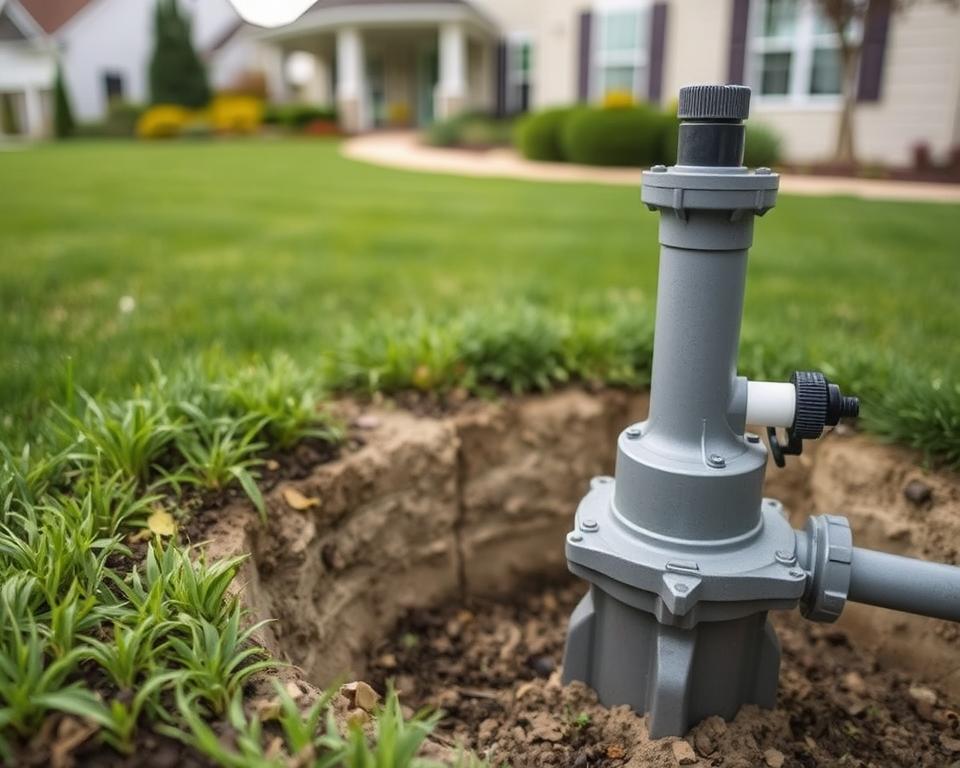Replacing a Septic Tank Pump: Your Guide
Do you know the result of a Septic Tank Pump malfunction? For many, it’s a event that brings serious anxiety and surprise expenses. Realizing the requirement for quick replacement is vital in keeping a functional and clean Septic system. By committing to routine system checks, including swift repair needs, you lengthen your system’s life while skipping high emergencies. Companies like All in Sanitation fulfil a pivotal role in helping keep your Septic tank operating smoothly. This guide seeks to give a straightforward understanding of Septic Tank Pump replacement, covering warning signs and care advice for septic pump out.
Fundamental Insights
- Knowing the job of a Septic Tank Pump is vital for homeowners.
- On-time Septic Tank Pump replacement can save you money in the long run.
- Scheduled upkeep and cleaning are critical to prolonging the lifespan of your Septic system.
- Expert help can properly handle Septic system Pump repair and maintenance.
- Spotting early signs of Pump failure can ward off pricey restoration.
How Your Septic System Works
A Septic system is crucial for homes without access to public sewers. It handles and eliminates household wastewater responsibly. The Septic tank is integral to this system’s performance, acting as a key component in the process.
The Septic tank collects sewage, dividing solids from lighter materials. This division is crucial for effective wastewater treatment. The treated water then moves to the drain field, where it receives further filtration by the soil, protecting groundwater.
Knowing how your Septic system works can improve its life and efficiency. Ongoing service is vital for the Septic tank and the system’s overall condition. Homeowners must know their system’s details to prevent harm to the environment and avoid high-cost work.
What is a Septic Tank?
A Septic tank is a in-ground, watertight container critical for household waste management systems. It’s important to appreciate the Septic tank’s main duty: it handles sewage waste storage by conditioning it. This setup functions by isolating solids from liquids, supporting basic wastewater treatment and sanitation.
Its operation is powered by naturally occurring microorganisms that decompose waste. In regions without centralized sewage treatment, Septic tanks are crucial. They retain sewage long enough for solids to drop, forming sludge. Meanwhile, liquid effluent floats upward, setting the stage for filtration in the drainage field.
Keeping a Septic tank in good condition is critical for its performance and durability. Periodic upkeep is necessary to stopping troubles like backups and overflows. These issues can result in costly fixes and pose risks to the environment. In essence, Septic tanks serve an important function in ensuring hygiene and safety, especially in rural areas.

How to Tell a Pump Needs Replacing
Homeowners should be mindful of signs that their Septic tank may need a new Pump. A definite sign is experiencing foul odors near drains or in the yard, pointing to a system failure. Dealing with repeated or major sewage backups in your home demands prompt action to prevent worse issues.
Noticing slow draining drains indicates a potential problem. Plumbing fixtures that drain sluggishly might mean a Pump failure or a clog needing an expert’s evaluation. Additionally, patches of overly lush vegetation in your yard could signal trouble; this shows waste leakage, causing overflow concerns.
To ward off big and costly fixes, homeowners should tackle these symptoms promptly. Carrying out routine checks and maintenance is key for the Septic system’s peak function.
| Signs | Description |
|---|---|
| Foul Odors | Unpleasant smells around drains or yard indicating system failure. |
| Sewage Backup | Frequent backups in sinks or toilets indicating potential Pump issues. |
| Slow Draining Drains | Fixtures draining slowly can mean blockages or Pump malfunction. |
| Lush Vegetation | Areas of dense greenery near the tank pointing to possible overflow. |
Pump Lifespan and Timing
Appreciating the timing for replacing your Septic Pump is essential for a smooth-running Septic system. It’s recommended to have your system assessed every three years. A trained technician during these inspections provides insights into how well your system functions.
In most cases, cleaning the Septic tank becomes needed every five years. However, households with greater water use or a larger household might need more frequent servicing. Diligent service of your Septic system prevents costly repairs and increases its lifespan. Technicians in Septic services can design a maintenance plan that suits your demand and the characteristics of your system.
Keeping on top with Septic Pump replacements maintains your system’s peak performance and guards your home investment. Consistent checks and care sidestep surprise expenses. They maintain seamless system operation.
Replacement Cost Breakdown
The Septic Pump replacement cost fluctuates, influenced by many elements. Homeowners should anticipate paying from $500 to $1,300 for a new Pump. This price band accounts for diversity in the type of Pump and material needs. It’s important to account for the Pump and Septic tank servicing costs for the placement and necessary inspections.
Costs can also rise due to complications within the Septic system or regional labor rates. Essential repairs, triggered by wear or harm, could inflate the total outlay. In calculating financial estimates for Septic services, add charges for routine care, inspections, and any sudden problems since these factors greatly help with maintaining your system’s longevity.
Setting aside money for routine Septic service lessens the surprise of sudden charges. Advance planning helps owners in covering expenses connected with the Pump’s replacement and system upkeep.
Steps in Pump Replacement
The Septic Tank Pump replacement commences with a detailed inspection of the system. This opening check finds any additional issues besides the Pump itself. The worn-out Pump is then extracted carefully and swiftly.
Installing the new Pump requires exact care to securing connections, making sure no leaks. Professional Septic services make certain the installation is done correctly, lowering future issues.
The concluding phase is a detailed final inspection. It verifies proper functioning, granting homeowners confidence. With expert help, the process is seamless, causing minimal disruption.
Pump Installation Guidelines
When undertaking Septic Pump installation, it’s essential to observe best practices. Using licensed contractors secures compliance with local regulations. They competently oversee the installation details, preventing errors common in inexperienced setups.
Adhering to precise Septic service standards is important for harmonious performance. Selecting proper parts and durable materials extends the Pump’s life and improves the Septic system’s efficiency. This meticulous attention improves maintenance and overall performance longevity.
- Select a trusted service provider who is experienced in Septic systems.
- Confirm that all necessary permits and inspections are in place before work begins.
- Use Pumps that meet the specific requirements of your Septic system.
- Incorporate a pre-installation inspection to check site conditions.
- Consider the layout and flow of the Septic system during installation.
Following these guidelines leads to a trouble-free install. It also guarantees a reliable system for proper sewage treatment.
Caring for Your Septic System
Stopping high bills with your Septic system starts with periodic upkeep. By using easy guidelines, homeowners can preserve their Septic systems’ efficiency. Setting up periodic reviews is a prudent measure. It finds and tackle problems before they become major.
It’s also crucial to stop flushing dangerous items down the drain. Fat, chemicals, and items that don’t break down can impair your system. Reducing water use during high-usage times can also improve system handling.
Arranging specialist cleanings with entities like All in Sanitation is important for Septic health. Knowing what you can and cannot do with your Septic tank can materially prolong its lifespan and shield your household environment.
Cleaning Your Septic Tank
Consistent Septic tank cleaning is vital for your system’s extended function and efficiency. The process comprises clearing sludge, looking for issues, and making sure everything runs smoothly. These steps are necessary to ensure continuous performance and stop costly repairs.
A robust Septic maintenance plan should include regular inspections and cleanings that suit your specific needs. Homeowners must realize the importance of prompt care to prevent issues like backups. Bringing in pros confirms the cleaning is complete, encouraging a clean living environment.
| Service Type | Frequency | Benefits |
|---|---|---|
| Pumping | Every 3-5 years | Prevents system failure and backups |
| Inspection | Annually | Detects potential issues early |
| Maintenance | As needed | Extends the lifespan of the system |
Investing in periodic Septic tank cleaning reduces expenses and increases your system’s life. It keeps the waste management system working without issues. Acting now safeguards your Septic system’s efficiency for the future.
Picking a Pump Replacement Provider
Selecting a trustworthy Septic service provider is vital when replacing a Septic Tank Pump. Start by checking their certifications and licenses. Such credentials confirm the company’s compliance with industry norms, critical for a successful replacement process.
Researching customer reviews is also a vital move. Past feedback indicates service quality, supporting the filtering process. Choose companies with a steady track record of excellent workmanship and customer support.
Acknowledge recommendations from your friends and neighbors too. Insights from friends and neighbors can reveal top-notch Septic services in your vicinity. Always ask for detailed instances of their successful projects with these services.
Finally, review the service scope and cost from various firms. A comprehensive analysis secures exceptional service and improves the value of your expenditure. Observing these guidelines guarantees your Septic system receives the best care it requires.
DIY vs. Professional Service
Homeowners often find themselves pondering whether to address Septic issues independently or hire specialists. DIY Septic maintenance looks attractive for simple fixes and upkeep. For example, observing tank volume or snaking lines can be done without expert intervention.
On the other hand, recognizing when to hire Septic professionals is important for serious problems. Heavy-duty repairs, replacing systems, or serious blockages call for unique tools and knowledge. Without the proper expertise, attempts to repair these problems can cause environmental risks and major destruction.
Choosing between DIY and professional help calls for judging the job’s complexity. Presented below are examples demonstrating when DIY is appropriate and when professional Septic services are recommended:
| Situation | DIY Feasibility | Need for Professional Help |
|---|---|---|
| Routine maintenance (e.g., tank level checks) | Yes | No |
| Minor clogs in drain fields | Yes | No |
| Major Septic Tank Pump failure | No | Yes |
| Complex sewage backflow issues | No | Yes |
| Regular system inspections | Consider DIY | Yes for thorough checks |
Choosing wisely on these matters assures safety and efficiency. Selecting well not only protects the Septic system but also heads off sudden charges.
Bringing It All Together
Knowing the workings of your Septic system is important for its efficient oversight and your home’s efficiency. Catching early signs of issues stops high repair bills and protects the system’s wellbeing. This proactive approach supports the environment and enhances your property value.
To keep your Septic system in optimal condition, focus on maintenance. This entails consistent assessments and on-time professional Pumping. This modest investment keeps your home’s safety and your family’s health. Your Septic system performs optimally with good care.
Our team at All in Sanitation is dedicated to delivering top-notch Septic care. We supply the experience necessary to keep your system operating efficiently, protecting your home investment over time. With our dedication to outstanding care and trustworthiness, we’re eager to serve your Septic maintenance needs.
